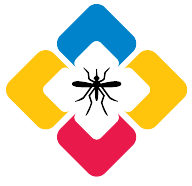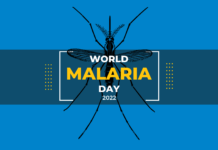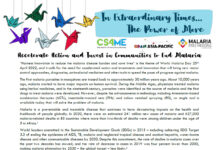Maintaining uninterrupted malaria services in Paletwa Township during the conflict and COVID-19 related restrictions was not an easy task. Yet, Medical Action Myanmar managed to obtain an impressive success.
The case study of MAM vividly shows that leveraging the strong network of functioning volunteers who can respond quickly not only to malaria but also to COVID-19 and other health illnesses gain the trust within the community and able to continue the health services. The intersectoral collaboration among key stakeholders such as the Township Authority, Township Medical Officer, NMCP, the village chief, and village health volunteers and proactive planning for the interventions and safety of staff and volunteers also the key drivers for MAM to keep on going serving the vulnerable and at-risk populations during a pandemic.
These enablers echoed the key takeaways on building trust, integration of health services, and leveraging CSO in the transition to sustainability that were shared by the CSOs during the APMENxChange webinar. Importantly, program implementers need to be flexible to adjust interventions responding to challenges and maintain the most critical prevention of malaria services to reduce the overall impact of the COVID-19 pandemic.







